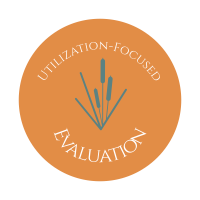Description: Utilization-Focused Evaluation begins with the premise that evaluations should be judged by their utility and actual use; therefore, evaluators should facilitate the evaluation process and design any evaluation with careful consideration of how everything that is done, from beginning to end, will affect use. Use concerns how real people in the real world apply evaluation findings and experience the evaluation process. Therefore, the focus in utilization-focused evaluation is on intended use by intended users.
Utilization-focused evaluation is a process for helping primary intended users select the most appropriate content, model, methods, theory, and uses for their particular situation. Situational responsiveness guides the interactive process between evaluator and primary intended users. A psychology of use undergirds and informs utilization-focused evaluation: intended users are more likely to use evaluations if they understand and feel ownership of the evaluation process and findings; they are more likely to understand and feel ownership if they’ve been actively involved; by actively involving primary intended users, the evaluator is training users in use, preparing the groundwork for use, and reinforcing the intended utility of the evaluation every step along the way.
Participants will learn:
Key factors in doing useful evaluations, common barriers to use, and how to overcome those barriers.
Implications of focusing an evaluation on intended use by intended users.
Options for evaluation design and methods based on situational responsiveness, adaptability and creativity.
Ways of building evaluation into the programming process to increase use.
The course will utilize the instructor’s text: Utilization-Focused Evaluation, 4th Ed., (Sage, 2008).
Click here for more information and to register.
